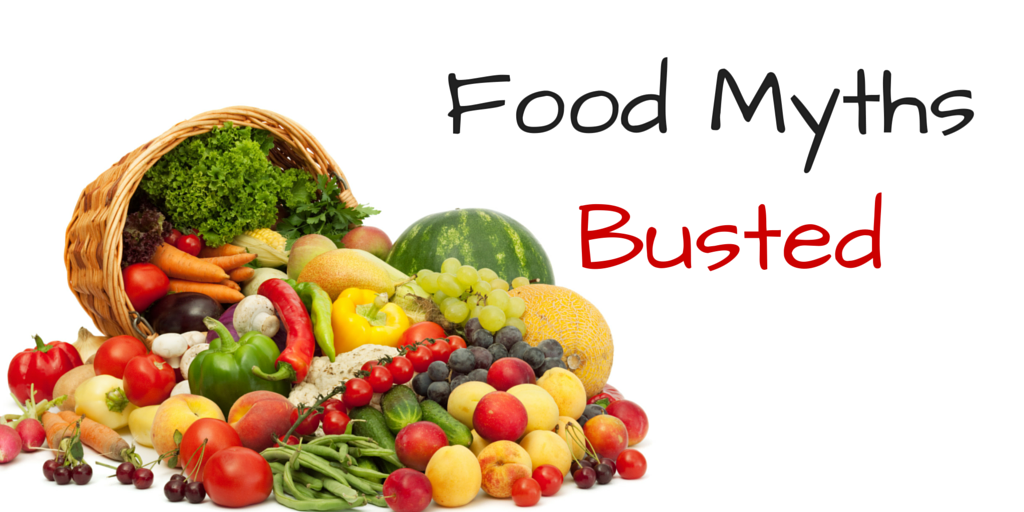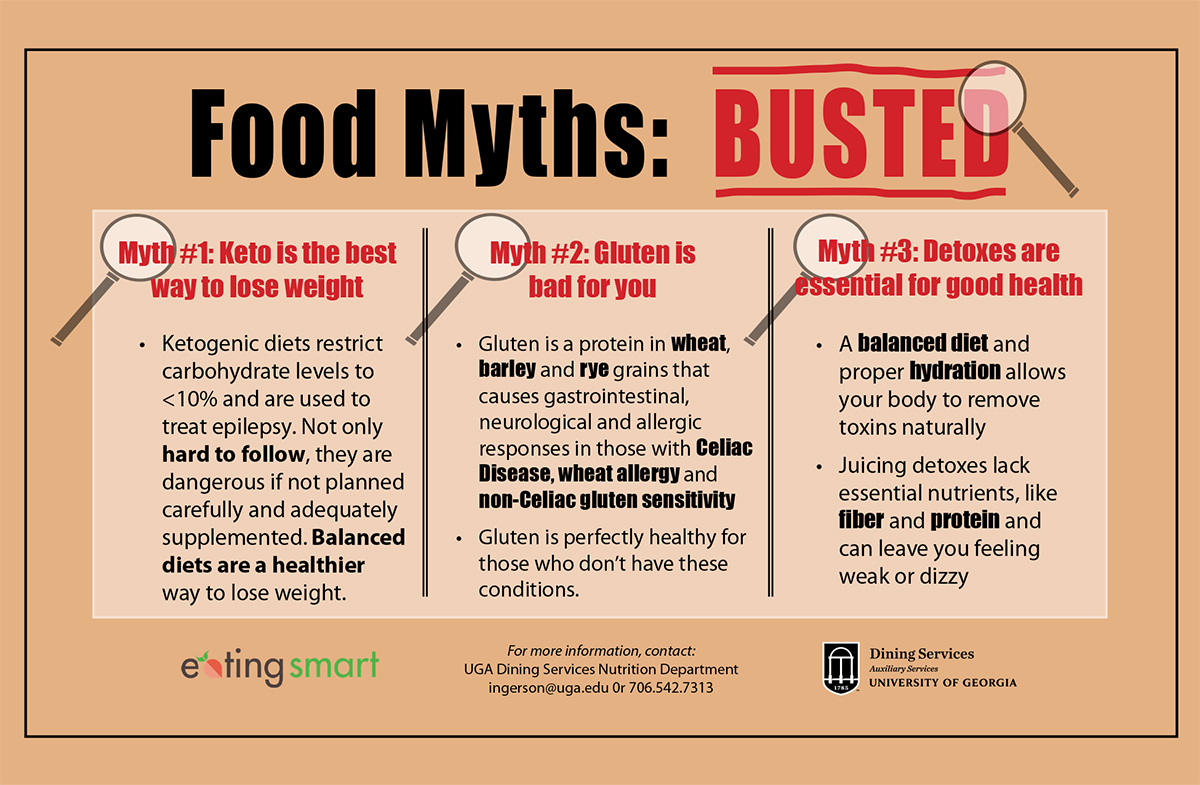Nutrition Myths Unveiled: Fact Versus Fiction
Introduction
Nowadays, health and wellness are constantly evolving. Nutrition is a cornerstone to being healthy. Unfortunately, despite all of the existing information, many myths and misconceptions around nutrition still exist; as a result, many people are left to starve for optimal health. In this brief, we’ll dispel a number of the most popular nutrition myths using science-based evidence and provide guidance on how to make healthier and more informed nutrition choices.
Myth 1 : Carbs are the ENEMY!
For many years, carbs have been labeled as the cause of weight gain and other health issues. Although not all carbs are created equal, it is true. While refined carbs such as white bread, as well as sugary snacks and carbonated drinks, can lead to high blood sugar and weight gain, intricate carbohydrates like those found in whole grains, fruits, and vegetables are indispensable for ensuring a constant source of energy and maintaining one’s health.
According to the ACS, eating high-fiber carbs such as oats, quinoa, and legumes can help with digestion, lower the chances of chronic conditions like heart attack and type 2 diabetes, and help with weight control by promoting a feeling of fullness . Moreover, different-colored fruits and vegetables bring essential vitamins and minerals while also helping with one’s general feeling of well-being .
Whole grains such as brown rice, barley, and whole wheat give beneficial fiber and b vitamins, as well as minerals like magnesium and selenium. They may help individuals remain healthful while reaping the benefits of carbohydrate.
Myth 2: Fat is bad
The belief that fat is evil caused many to follow low-fat or fat-free diets to lose weight and even feel healthier. While some fats don’t seem good because they’re good for the optimal functioning of our bodies and general well-being.
So-called “good fats” such as monounsaturated and polyunsaturated fats also help reduce heart disease, increase brain function and skin cleanliness. We need these fats to digest fats that dissolve vitamins such as vitamins A, D, E, and K, which are involved in many functions. Foods high in good fats include avocados, nuts, fish, and seeds .
Nonetheless, one must avoid as much as possible trans fats which are usually found in processed and fried foods because they have been shown to raise the risk of heart diseases. Food labels should be read by individuals to allow them select products that do not contain any trans fat so that they can make healthier choices for their cardiovascular health.
Healthy fats also help in improving taste and texture of meals making it tastier and more satisfying. Thus, healthful oils or fats could be incorporated into meals or snacks such as using sliced avocados on salads or spreading nut butter on whole grain toast thus ensuring a balanced and delightful diet is maintained.
Myth 3: Eating Late at Night Causes Weight Gain
There is a belief that people who eat late at night become obese hence many persons refrain from eating afterwards at a certain time until the following morning. It’s true that excessive calories from food consumed at any time of day can cause weight gain but the timing of meals does not matter.
What really counts are how many calories you eat during an entire day as well as what kind of calories those are. To actually get a good sleep and reduce hunger pangs the following day, incorporate protein, healthy fats and carbohydrates rich in fiber into your meal or snack before retiring to bed. Hunger can be satisfied but weight management not jeopardized by choosing nutrient-dense snacks such as Greek yoghurt with berries or a small handful of nuts.
In addition, some studies even suggest that eating a light snack before bed may promote weight loss by preventing overeating on the subsequent day and stabilizing blood sugar levels. However, it is important to listen for cues from your body that you are hungry rather than using food as a comforter or boredom solution at any hour of the day.
Myth 4: All Protein Sources Are Equal
Protein is necessary for muscle mass maintenance, supporting the immune system and building and repairing tissues. But all proteins are not created equal; some have better nutritional quality than others.
Although animal-based sources such as poultry, meat, dairy products provide complete proteins because they contain all nine essential amino acids needed by our bodies plant-based ones like lentils, beans, tofu and quinoa when consumed together during the day still give significant protein too. An assortment of protein sources can be mixed into meals and snacks throughout the day so that individuals receive enough proteins per day while enjoying diverse diets.
More so, plant proteins holds other advantages like they are low on fat and cholesterol, high in fibers and antioxidants, and are environmentally sustainable. In addition to this, selecting plant protein over animal-based can not only improve personal health but also conserve the environment and enhance animal welfare.
Incorporating protein-rich foods into every meal may lead to stabilized blood glucose levels, satiety sensation and support muscle growth and recovery. If you prefer either non-animal or animal proteins for consumption, ensuring a variety of sources of proteins is a necessity in meeting your dietary requirements thereby maximizing your well-being.
Myth 5 : Going Gluten-Free is Healthier for Everyone
These days gluten free diets have been popular as many people believe that getting rid of gluten – a protein present in wheat, rye barley – is good for general health. Although there are individuals who must not eat gluten in order to avoid these reactions due to celiac disease or gluten sensitivity; however there is no scientific proof that supports it makes all people healthier.
Indeed, in the absence of gluten, some products labelled as gluten free are high on sugar, unhealthy fats or refined grains as a way to substitute for the missing element. This is not applicable for people without disorders related to gluten; instead they should focus on a balanced nutrition involving whole grains, vegetables, fruits, lean protein and healthy fats that can provide them with optimal health. Furthermore, when one eat nutrient-rich diets or whole foods while avoiding highly refined and processed products it helps to promote their general well-being.
Hence, consuming various types of whole grains such as quinoa brown rice oats millet among others provide essential nutrients like fiber vitamins and minerals for good digestion system heart wellness and general body fitness. Nevertheless use of other wheat alternatives like amaranth teff buckwheat that are gluten-free adds variety and nutritional value to meals while catering for diverse diet-related preferences.
It is important to eat plenty of fruits and vegetables which not only contain essential vitamins minerals and antioxidants but also contribute flavor colour plus texture into meals. In addition make certain that at any given meal about half your plate should be filled with fruits as well as vegetables in order to avail different nutrients that support overall wellness”.
Conclusion
In conclusion, nutrition is full of myths, but it’s critical to identify reliable sources and distinguish the truth from lies. In this context, debunking the most widespread misconceptions and relying on scientific data can help individuals establish a healthy relations with food, feed their bodies properly, and flourish in multiple aspects of their life. Most importantly, knowledge is the strongest weapon, and science serves as source and lifeline towards health and well-being.































